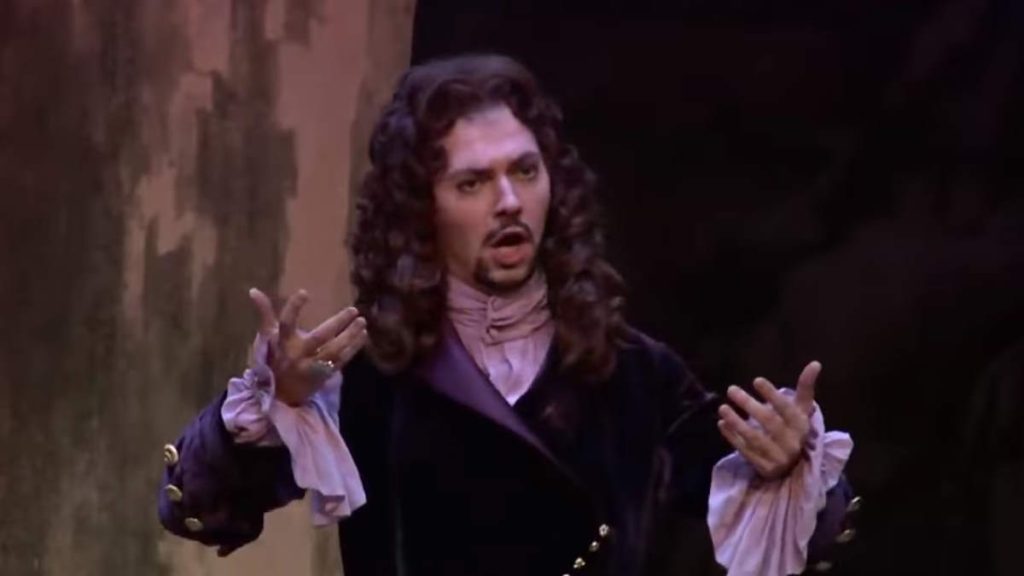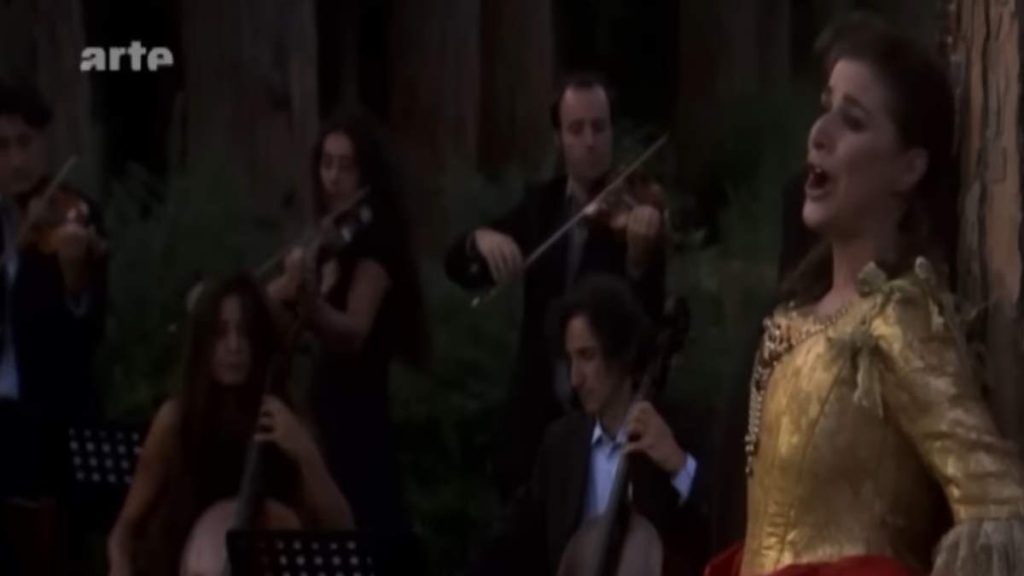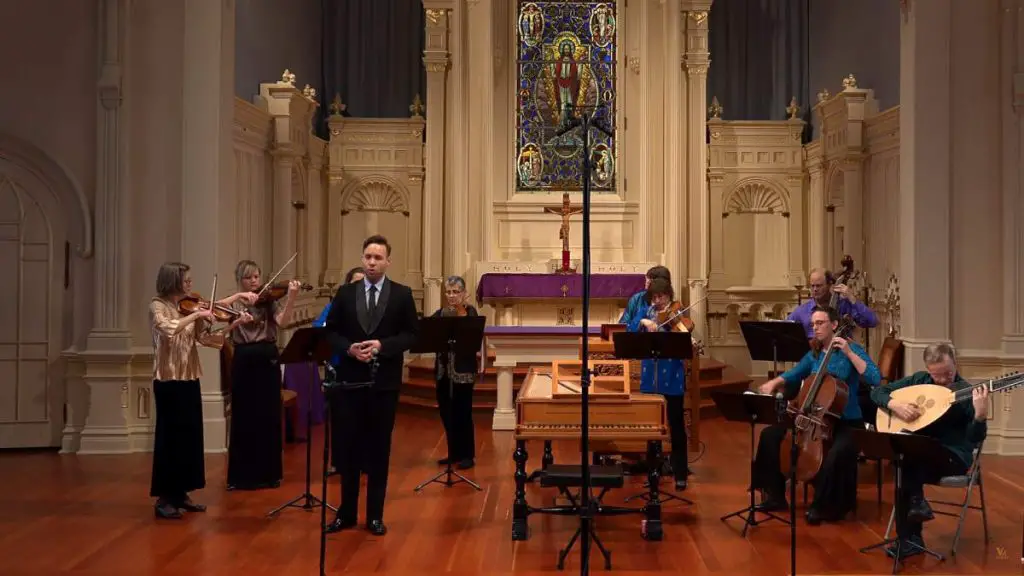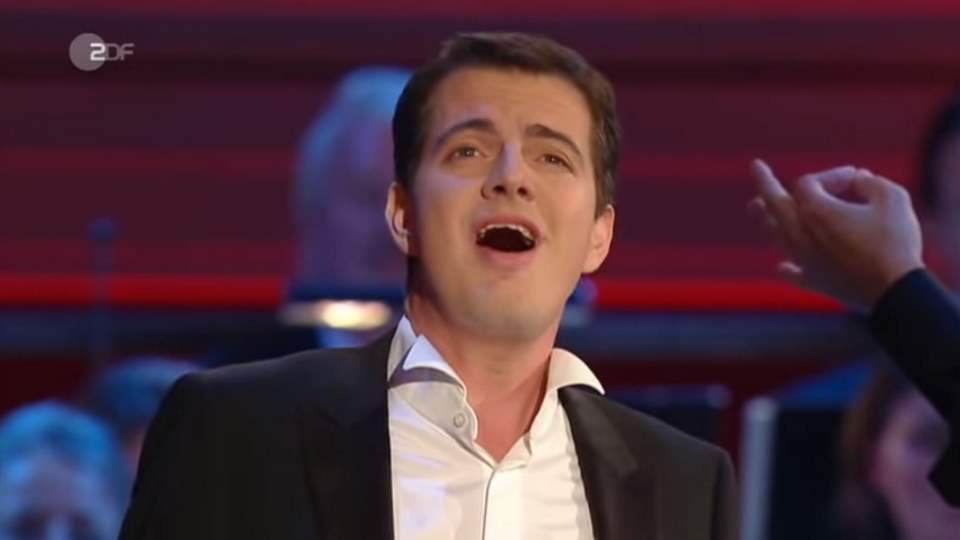Romanian-German countertenor Valer Sabadus sings “Ombra mai fu”, the opening aria from the 1738 opera Serse by George Frideric Händel.
George Frideric Händel’s Ombra mai fu
“Ombra mai fu” is an aria from George Frideric Handel’s opera Serse (Xerxes), composed in 1738. Although the opera itself initially did not achieve widespread acclaim, this particular aria, also known as Handel’s “Largo,” has become one of the most beloved pieces in the classical music repertoire. Its enduring appeal transcends the operatic stage, finding its way into concerts, events, and numerous recordings across vocal and instrumental formats.
Set at the opera’s outset, “Ombra mai fu” is sung by the protagonist, Xerxes I of Persia, who expresses his deep admiration and affection for the shade of a plane tree. The aria’s text is a poetic ode to the tree, wishing it blessings and peace. This moment of calm and reflection is an unconventional choice for the opening of an opera but establishes a unique emotional and thematic tone for the story that unfolds.
Musically, the aria is characterized by its slow, expansive melody that mirrors the serene and reverential mood of the text. Written in the key of F major, it features a simple yet moving harmonic progression, illustrating Handel’s ability to convey profound emotional depth through minimalistic musical means. The aria’s slow tempo and gentle melodies have made it a favorite for solemn occasions and reflective moments, beloved for its capacity to evoke peace and emotional depth.
“Ombra mai fu” has found a place in the hearts of audiences well beyond its original context, performed by a wide range of vocalists and adapted for various instruments. The aria’s versatility and universal appeal highlight Handel’s masterful composition skills, as the piece resonates with listeners for its expression of love for the natural world and the tranquility it offers.
The aria’s popularity serves as a testament to Handel’s legacy in the world of classical music, celebrated for its melodic beauty and the emotional resonance it carries. Its performances and recordings by various artists offer a spectrum of interpretations, showcasing the piece’s adaptability and enduring charm. For those looking to delve deeper into Handel’s work and the history behind Serse, a wealth of resources, including musicological studies, scholarly articles, and dedicated classical music platforms, provide detailed insights into the composition’s background and its place in Handel’s oeuvre.
Ombra mai fu lyrics (Text)
Italian
Frondi tenere e belle
del mio platano amato
per voi risplenda il fato.
Tuoni, lampi, e procelle
non v’oltraggino mai la cara pace,
né giunga a profanarvi austro rapace.
Ombra mai fu
di vegetabile,
cara ed amabile,
soave più.
English translation
Tender and beautiful fronds
of my beloved plane tree,
let Fate smile upon you.
May thunder, lightning, and storms
never disturb your dear peace,
nor may you by blowing winds be profaned.
Never was a shade
of any plant
dearer and more lovely,
or sweeter.
Valer Sabadus
Valer Barna-Săbăduș, also known as Valer Sabadus, born on January 15, 1986, in Arad, Romania, is a distinguished Romanian-German countertenor known for his versatility in both alto and soprano ranges. The son of a pianist mother and a cellist father, who passed away when Valer was just four years old, he emigrated to Germany with his family in 1991 following the fall of the Ceaușescu regime. Growing up in Landau an der Isar, Lower Bavaria, Barna-Sabadus was introduced to music through violin and piano lessons.

His formal music education began at 17 when he started countertenor studies at the Hochschule für Musik und Theater München under Gabriele Fuchs. He became a member of the Bayerische Theaterakademie August Everding in 2009, completing his postgraduate studies with distinction in 2013. Even before completing his studies, he took on significant roles in operas by composers such as Gluck, Händel, Cavalli, and Mozart, under the direction of various conductors. Eventually settling in Cologne in 2018, Barna-Sabadus has made a notable impact on the opera scene.
His career highlights include participating in the Artaserse tour with other countertenors, debuting in the title role of Handel’s Serse at the Deutsche Oper am Rhein, and performing at the Aix-en-Provence Festival as Menelao in Cavalli’s opera Elena. Since 2014, he has been signed with Sony Classical, showcasing his talent in recordings and live performances, such as the title role of Handel’s Teseo at the Händel-Festspiele Karlsruhe and the Badisches Staatstheater Karlsruhe. Barna-Sabadus’s journey from a child of musicians in Romania to a celebrated countertenor in Germany underscores his exceptional talent and dedication to classical music.
Sources
- Ombra mai fu on Wikipedia
- Serse on Wikipedia


